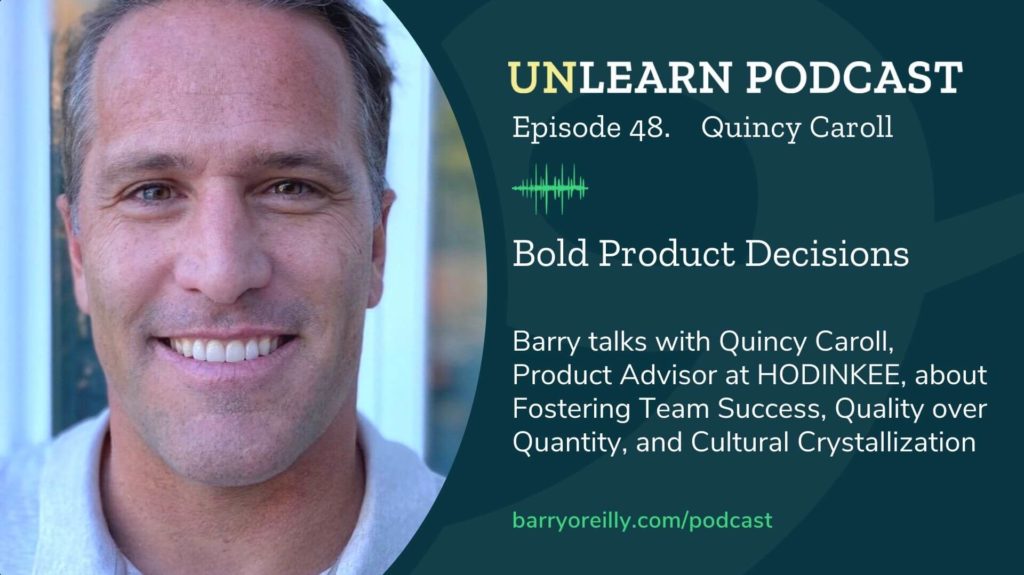Quincy Caroll has a passion for delighting users, fans, and communities through world-class mobile, web, and computer applications and services. Quincy is this week’s guest on the Unlearn Podcast. He and host Barry O’Reilly discuss the bold product decisions he experienced while working on initiatives such as GarageBand at Apple, pivoting eBay’s search algorithm to scaling Crunchyroll, the world-leading Manga streaming platform from 300,000 to 3 million users.
A Product Person
Quincy changed careers several times throughout his professional life. What he learned along the way helped him to become a “product person”. Barry asks him to explain some of the things he learned about himself during this period. Quincy responds that being a product person allowed him to work with all kinds of people. The diverse perspectives and experiences are invaluable in developing products, he comments. He is happy that the focus is now on group mentality and fostering team success. “Now it’s about the actual function of the role as it is, like either mentoring other people or setting up the team in such a way that the chemistry is right.” [Listen from 5:00]

Getting The Timing Right
Companies, products, and projects are all about the right timing. How they come to be and how they ultimately develop depends on the time spent on them and what concepts and disciplines are used to create them. Barry comments that craft discipline is a concept that is still forming even now. He remarks on Quincy’s time at Ebay. Quincy adds that during his time there, he worked on, and was able to complete, significant platform-level projects within Ebay’s system. However, he also faced the challenge of convincing the company not to end certain projects. Many organizations face this same challenge, Quincy comments: they either end projects too quickly, or let them run for too long. [Listen from 9:30]
Quality Over Quantity
Quincy and Barry discuss the challenges of business owners who are rigid regarding product development. Barry comments that many people have challenges getting their ideas launched and supported due to these owners. “Companies need to look at different variables to create quality rather than quantity,” Quincy says. One such variable is an employee’s working process. Employees may structure their entire working process around a particular method to get a desired outcome. He warns that changing their structures in hopes of improving company profitability may have adverse effects. He advises that these kinds of issues can be resolved by testing new technologies and analyzing the resulting data to decide what methods work. [Listen from 14:35]
Cultural Crystallization
Cultural crystallization is unraveling an original framework into its components and deviating from the established norm. For companies to develop, they need to crystallize the culture of not only the company but also the industry and the product. They need to unravel the cultural framework around promotion. To do this, product developers need to be heard. Quincy gives an anecdote of presenting a product to the heads of department through the use of comic books. Through this innovative way, he was able to keep the board members actively engaged while informing them about his product. Barry comments that the conventional ways of promotion and pitches through slides are boring and outdated and that we need to keep things fresh and engaging. [Listen from 23:45]
The Age Of Information
We live in the age of readily accessible information. Quincy talks about being able to liaise and engage in product development with people around the world. Leaders need to capitalize on that to help build production. The tools are there, and we must use them, he emphasizes. [Listen from 34:35]
Don’t want to miss a post? Sign up for my podcast newsletter and monthly newsletter!















